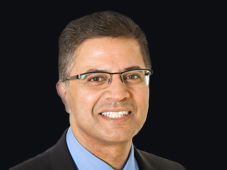The value of an MBA qualification is just as strong and hasn’t waned at all – to set the record straight. As a rigorous training program for business professionals, it has few parallels. Notwithstanding a certain sameness seen in the yesteryears, today, the need for accreditation has increased vastly, and B-schools have to necessarily adhere to it to stay relevant. It’s seen as a major ask towards maintaining academic excellence and be taken seriously.
Besides sustaining academic rigour, schools today are deeply engaged in managing careers and supporting entrepreneurship as well. The top-tier schools lay great emphasis on soft skills (the power of persuasion for instance), including the need to foray into social sectors. Inasmuch, the not-for-profit organizations are making their mark and attracting very competent people, in process. The need to address social issues is more pronounced than it was earlier, and easily gravitating towards increased stakeholder support.
Dil Sidhu completed his MBA in 1995. At that time, the emphasis on hard skills was unmistakable. It was a generation which swore by concepts such as RoI, NPV, strategy et al. Today, talks also veers around ‘collaboration’ and is driven by a new generation of leaders who have a very different understanding of business. Not least because of the constant need to manage global workforces. This is not to imply that the focus on hard skills is on the decline, but that soft skills are given equal importance as well. Always having to maintain that curious balance – akin to walking a tightrope - is arguably a new-age challenge which professional managers grapple with at all times.
Today, it is not at all uncommon to be active in a global marketplace which is not constrained by geographic boundaries. Global politics and its volatility have birthed a VUCA environment where nothing is constant – not even the pace of change! Two decades back, the ship wasn’t being rocked as often. Often touted as the “new normal” effective leadership is about rallying around diverse teams which are spread across different time zones to negotiate change, hitherto unprecedented. A siloed approach almost certainly spells the death-knell today, and teams have to be constantly reflective, as progress is made.


